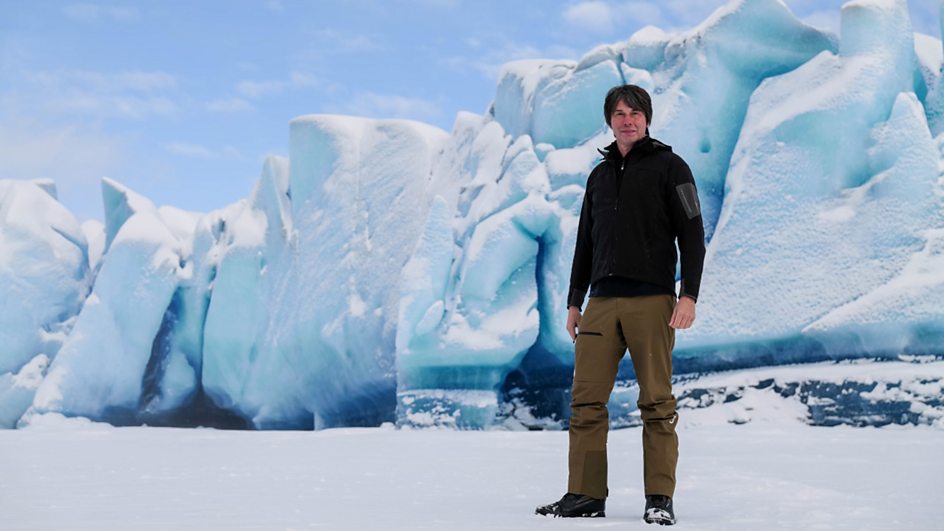
• UK: Watch for FREE on BBC iPlayer
• US: Watch on PBS Nova
• Away from home: Use a VPN such as NordVPN to watch your usual service from anywhere
After the success of TV shows such as "Planets" and "Adventures in Space and Time", Brian Cox is back with a new five-part series: "Solar System".
The popular physicist will set out to lift the lid on the "truly extraordinary" events unfolding daily on the planets and moons of our solar system.
"We are living through a golden age of exploration," Cox told the BBC. "As we speak, there are spacecraft in orbit around or on the surface of five of the eight planets in our solar system, and there are a host of new missions close to launch or en-route to their targets. As new data cascades in, we are building an ever more accurate picture of our solar system."
The first episode is entitled 'Volcano Worlds' and sees Cox examine the Volcanic activity on other planets, most notably Venus, where volcanoes abound and evidence grows that they are more active than previously thought.
How to watch 'Solar System' for free in the UK
How to watch 'Solar System' from anywhere
If you're a UK resident abroad, you can still watch "Solar System" for free on BBC iPlayer.
Downloading a VPN allows you to stream your favourite content from anywhere. These simple pieces of software can change your IP address, allowing you to access on-demand content or live TV just as you would at home.
BBC iPlayer doesn't work outside of the UK. A VPN solves that problem...
Important: we do not support or condone the illegal or malicious use of VPN services. Consuming pirated content that is paid-for is neither endorsed nor approved by Future Publishing.
How to watch 'Solar System' in the US
"Solar System" was produced for PBS and the BBC.
The five-part series airs on PBS on Wednesdays, beginning October 2 at 9pm Eastern Time / 8pm Central Time. The series will also be available for streaming at PBS Nova, NOVA on YouTube, and the PBS app.
Remember: Brits away from home can use NordVPN to access BBC iPlayer when traveling abroad. You'll need an iPlayer account (free) and a valid TV license.
Solar System official trailer
Ahead of the first episode, here's a teaser of what's in store...
"Solar System" (2024) episodes
Episode 1: Volcano Worlds
Professor Brian Cox journeys to the volcano worlds of the solar system and explore alien landscapes bursting with fire and ice.
Episode 2: Dark Worlds
Professor Cox explores the solar system’s hidden realms, between and beyond the planets, where countless worlds lie shrouded in darkness.
Episode 3: Storm Worlds
Professor Cox explores the storm worlds of the solar system and the weird weather that plays out in the atmospheres of distant planets and moons.
Episode 4: Ice Worlds
Professor Cox meets the dwarf planet where mountains of solid ice float across the surface.
Episode 5: Strange Worlds
Professor Cox visits an egg-shaped dwarf planet that shouldn’t really exist and a tiny moon that looks like a UFO.
"Solar System" FAQ
Who else appears in the "Solar System" TV series?
"Solar System" features a whole host of scientists including: Carly Howett from Oxford University; Lynnae Quick from NASA’s Goddard Space Flight Center; Veronica Bray Durfey from University of Arizona; Leigh Fletcher from the University of Leicester; James O’Donoghue from the University of Reading; James Dottin III from Brown University; Hakeem Oluseyi from George Mason University; Michael L. Wong from the Carnegie Institution for Science; Katherine de Kleer from the California Institute of Technology; George Dransfield from Birmingham University; David Grinspoon from NASA; Derrick Pitts from the Franklin Institute; Shannon MacKenzie from Johns Hopkins University; Abigail Fraeman from NASA’s Jet Propulsion Laboratory; Peter Gao from Carnegie Science; Alejandro Soto from the Southwest Research Institute; Jen Gupta from the University of Portsmouth; Sara T. Port, from the NASA Glenn Research Center; Amy Mlinar from the Planetary Science Institute.







